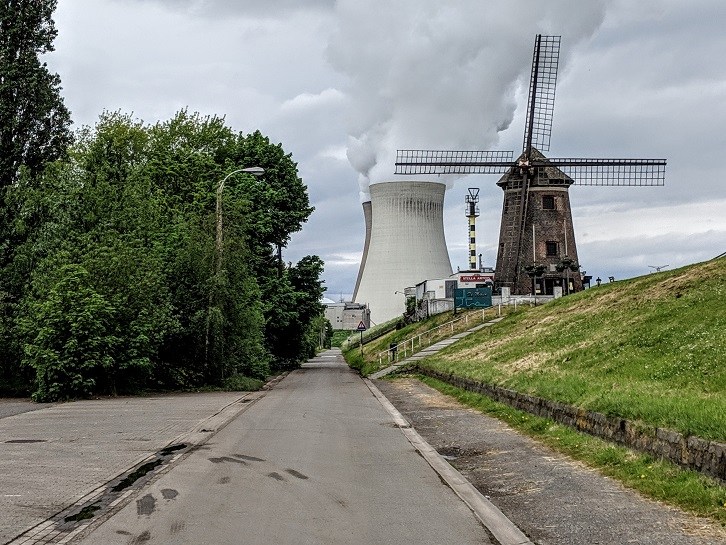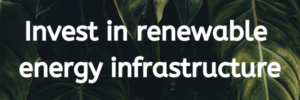Belgium must make some key changes - and keep some things the same - if it wants to reach its climate goals, according to an upcoming report for policymakers.
Keeping the two 'youngest' nuclear power stations in Belgium open longer and making an efficient switch to electric vehicles are just two of the points set out by the Flemish engineering association IE-net in a new report.
According to the engineers, the Belgian economy faces a need for wide-reaching change, with a wide area of impact. To come up with their findings, they assessed primary energy consumption, the total amount of energy Belgium imports or produces, and the changes that are needed to eliminate greenhouse gas emissions.
The Energy and Electrical Engineering association intends to present their report with six recommendations for Belgian policymakers at an international energy conference in Brussels.
"After all, politicians should not only be busy with the next legislature but should also look ahead ten, twenty, thirty years", said Jan Desmet, Professor of Electrical Engineering and Chairman of IE-Net.
Based on the analysis the report offers these recommendations to develop and support new technologies and accelerate our behaviour:
While renewable energy is becoming cheaper, a lot of research and development is still needed for new applications, and there is a need for Belgium to continue to focus fully on it, say engineers.
Technology can probably save us, but we will need applications that do not exist yet, they add. "All investments in wind and solar energy in Belgium today account for only 2% of the total energy consumption. Despite the fact that industry has started consuming less energy, cars are becoming more efficient, houses are being better insulated, this has led to a reduction of barely 0.8% per year in the total energy we need," say the engineers.
The supply of renewable energy needs to be ten times greater and be used on a much larger scale, warns the report. This means investing in infrastructure for energy carriers of the future: for the import, transport and storage of large-scale and international renewable energy, hydrogen, e-fuels and also for CO2.
Since Belgium cannot produce that tenfold of green energy in its own country, it will have to import it, just as it is now importing crude oil or electricity from coal or lignite power stations. The government must ensure that Belgium develops the infrastructure needed for this, say the experts.
There are only two major energy technologies now, says Desmet. "Gas and electricity. That means that we will need pipelines."
The plan to close all nuclear power plants by 2025 must be modified to ensure a continued supply of electricity, according to the report. It instead suggests postponing the closure of the 'youngest' plants, Doel 4 and Tihange 3, to facilitate the energy transition.
It is one of the most striking measures they propose, but well-known climatologists such as Jean-Pascal van Ypersele support their statement.
"It's not a good idea to stop at once in 2025. Let's keep some nuclear power plants open for a little longer to look for climate-friendly alternatives in the meantime," says Desmet.
Belgium has not had an ambitious climate plan so far, and was in danger of not even meeting the non-ambitious climate goals it did have, according to Desmet, VRT reports.
"We are just a small country. The growth of solar and wind energy is a lot easier in Germany, for example, because the free space in Germany is much larger," said Desmet. "Nevertheless, Belgium could take other steps that are more difficult in other countries. Consider reducing the impact of CO2 emissions by tackling mobility."
The government should also encourage behavioural changes to a greater extent, according to the engineers.
That can be done by making mobility in cities more difficult for cars, for example, according to Desmet. "In Denmark, they have created cycling lanes that are kept free of snow and ice in winter, while the usual roads for cars are not. That encourages people to take their bicycle. They will always choose for their own convenience or comfort," he said.
Cutting out cars in favour of other modes of transport could be logistically difficult, but there are other solutions to cut down on emissions. "I think that it will be easier for society to give people an electric vehicle instead of abolishing company cars. Those cars are changed every four or five years, meaning we can electrify them in a short period of time," explained Desmet.
By using a 'polluter pays' principle, a CO2 tax on all fossil fuels will create a powerful signal that will reduce energy consumption in all sectors, Nieuwsblad reports. The aim is not to produce less energy, but to emit less CO2. The tax will be necessary, according to the engineers. "If the government does not intervene now, and allows the free market to go about its business, all changes will be too little, too late," they say.
Reducing the CO2 emission by 80 to 95% by 2050 can only be done by stopping the consumption of oil, coal and brown coal, according to the engineers.
Jules Johnston and Maïthé Chini
The Brussels Times







